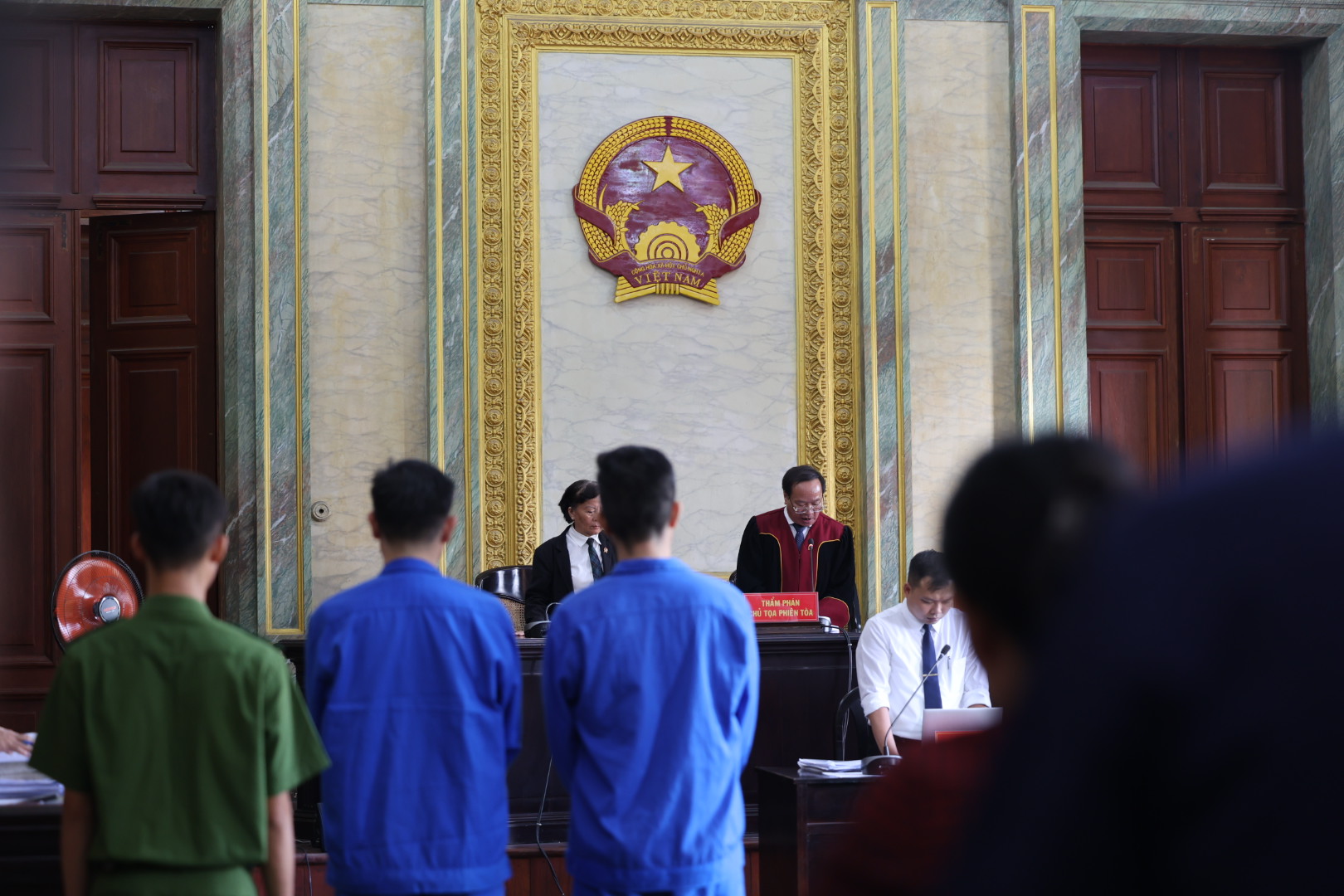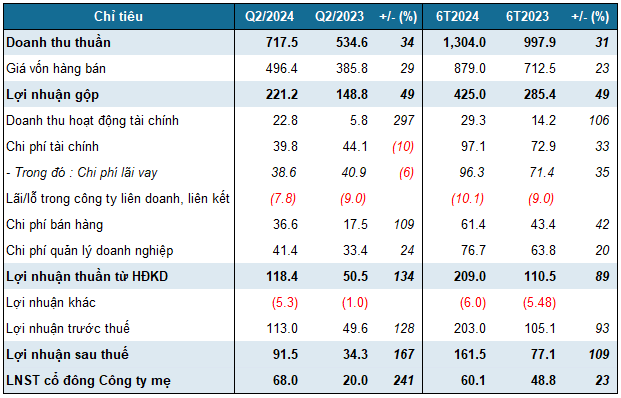The Ho Chi Minh City People’s Court confirmed that after the first-instance trial, defendants Pham Van Tam (former Chairman of Asanzo Company’s Board of Directors) and Pham Xuan Tinh (former CEO of Asanzo Company) filed appeals seeking reduced sentences.
Previously, on September 17, the Ho Chi Minh City People’s Court conducted the first-instance trial and sentenced the defendants involved in the “Smuggling” and “Tax Evasion” case at Asanzo Company.
According to the verdict, defendant Pham Van Tam (born in 1980) received a 4-year 6-month prison sentence for “Smuggling,” a 2 billion VND fine for “Tax Evasion,” and an additional 100 million VND supplementary fine.
Defendant Pham Xuan Tinh (born in 1985) was sentenced to 2 years 6 months in prison for “Tax Evasion” and a 50 million VND supplementary fine.

The two defendants listening to the court’s verdict
Compared to the sentences proposed by the Ho Chi Minh City People’s Procuracy, the court’s verdict was significantly lighter.
Specifically, the Procuracy had recommended 10–12 years in prison for defendant Tam and 4–5 years for defendant Tinh. The Procuracy argued that as leaders of the company, the defendants intentionally committed crimes, negatively impacting society, and thus deserved severe punishment as a deterrent. Additionally, the Procuracy found insufficient grounds to apply mitigating circumstances for active cooperation in the case of defendant Tam, as he initially denied smuggling activities, hindering the investigation.
However, the court determined that the two defendants had no aggravating circumstances, had confessed truthfully, shown remorse, and returned all related funds. Based on these factors, the court decided to impose sentences much lower than the Procuracy’s recommendations.
Unveiling the Shadows of Hoàng Hường’s Empire: Are There More Hidden Violations?
The Ministry of Public Security’s Investigation Police Agency has officially pressed charges and initiated legal proceedings against Hoang Thi Huong, the owner of the “Hoang Huong Ecosystem,” for “Violating Accounting Regulations with Serious Consequences.” However, legal experts suggest that the case may extend beyond this specific violation, potentially revealing indications of additional unlawful activities.




















